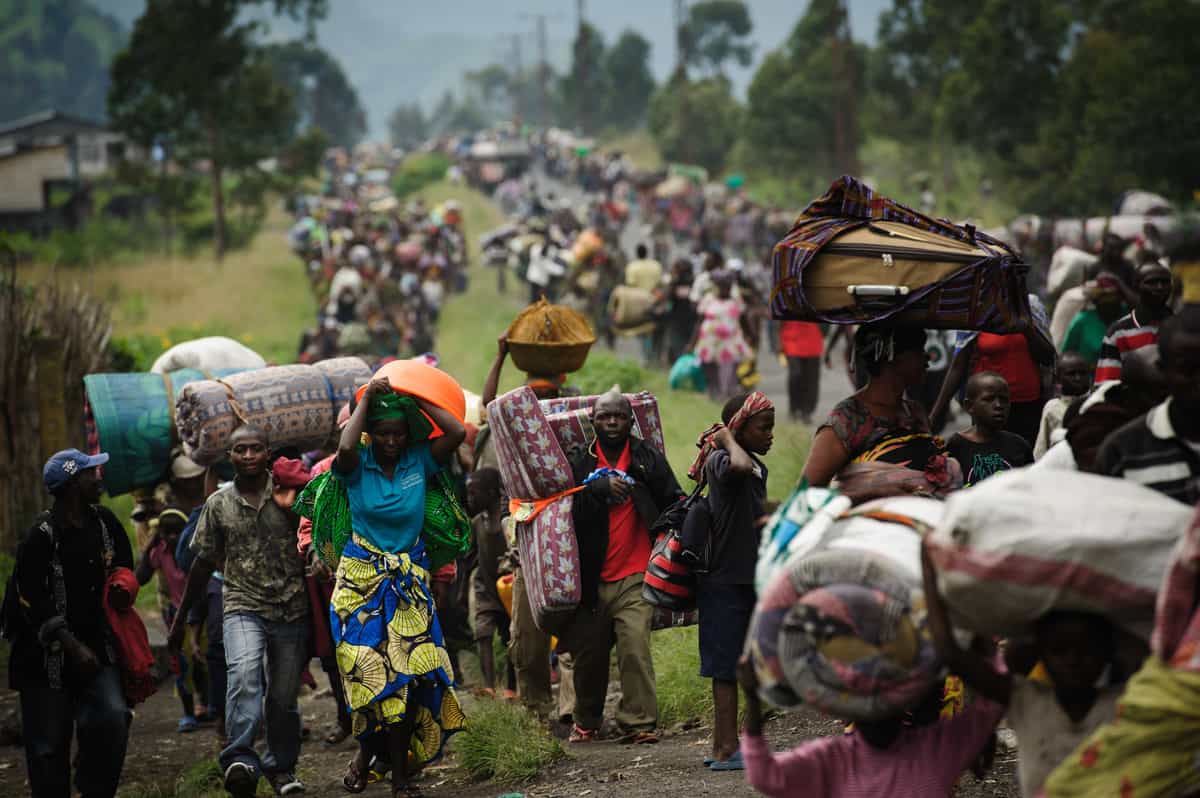Wherever you buy your clothes, it’s unlikely that you don’t own something that was made in Bangladesh, where 3 million people—mostly women—work in the clothing manufacturing industry. Next to China, Bangladesh is the second largest exporter of clothing in the world. This past weekend, 112 people died in a fire at Tazreen Fashions, a clothing factory outside of Dhaka, Bangladesh. Too few fire escapes, poor access roads, and a general disregard for fire safety measures make many of these factories little better than “death traps,” according to the international anti-sweatshop organization, Clean Clothes Campaign.
And this isn’t the first time this has happened. Since 2006, more than 500 such workers have died in industrial fires—fires that could have been prevented through adherence to minimum safety standards.
It is hard to imagine a similar scenario unfolding on these shores, but that is what happened only a little more than one hundred years ago in New York City. In 1911, 146 people—mostly young immigrant women—died in the now-famous Triangle Shirtwaist Factory fire, ignited, it is thought, by a match or a cigarette thrown into a scrap bin holding an overflow of flammable scraps. Because the doors leading to stairwells and exits had been locked to prevent workers from taking unauthorized breaks, the only way to escape the flames was to jump from the eighth, ninth and tenth story windows—that is, to jump to their deaths. Firemen held nets to catch them that tore uselessly from the force of their falling bodies.
The owners of the Triangle factory, Max Blanck and Isaac Harris, survived by fleeing to the roof of the building when the fire began.
This tragedy in 1911 led to national reform of all kinds: the founding of the American Society of Safety Engineers in New York City; the formation of a New York State Factory Investigating Commission; the implementation of at least 60 new laws regulating safety devices like fire escapes, access roads, sprinklers, extinguishers and alarm systems. The incident spurred on the formation of labor unions, and new legal regulations on child labor and the length of the workday. Together, these reforms helped transform factory jobs from near-imprisonment in “death traps” into a viable pathway to the American Dream.
In recent months, we’ve heard candidates talk a lot about “outsourcing” and about “government regulation,” the latter of which is often accused of being the killer of economic growth, and, therefore, unquestionably bad. Certainly, pesky American regulations like minimum wages and the number of bathrooms per worker and the presence of fire exits and alarms do reduce profits for the business owners. That is why businesses outsource to countries without those pesky regulations, countries like Bangladesh, where garment workers are among the world’s lowest paid at $37 a month and where, earlier this year, a union organizer was found tortured and killed.
Outsourcing is about more than losing “good American manufacturing” jobs. It’s also about losing those good American values that led us into decades of national prosperity.
Outsourcing and getting rid of government regulations means returning to conditions that gave rise to the Triangle Fire, except that now, the charred bodies land not in the streets of New York, but on the streets of cities a half a world away. And the burned remnants of clothing belong to American labels—Walmart, Disney and Sears. The spokespeople of these companies are now fleeing to the roof, retreating behind claims of ignorance as to the factory conditions and washing their hands of it by referencing cancelled agreements and rogue subcontractors.
Ignorance, even feigned ignorance, is so much more comfortable than facing harsh realities, which is part of why outsourcing is so desirable—and so profitable. The Triangle Shirtwaist Fire was New York’s deadliest disaster until the terrorist attacks on 9/11. Ninety years earlier, hundreds of horrified bystanders saw people—some already, terrifyingly, aflame—leaping to their deaths. Who among that cloud of witnesses would have objected to the implementation of government regulations to prevent future repetitions of that scene, even at some cost to profitability and economic growth? What is keeping us, witnesses to that history and now also to the tragedy at Tazreen, from advocating for measures preventing such stories from writing their own sequels?
It is often objected that people in places like Bangladesh are grateful simply to be employed, grateful for this crumb from the corporate table. Owing to the terrible poverty faced by many in such countries, this is in on some level true. But in what universe does human desperation justify inhumane treatment?
Horrific conditions in these factories—and thus, in the lives of the people who work in them—are not natural or inevitable. If unions and regulations transformed manufacturing jobs from poverty-maintaining to prosperity-making in the U.S., things could certainly be made much, much better for the workers who sew our fleeces and jeans and underwear. Walmart and others would turn slightly less enormous profits, perhaps, but enormous profits nonetheless.
Evangelicals are excellent at organizing boycotts and protests, or, in the case of Chick-fil-A, massive showings of ideological and consumer power. But it seems that Christians are slow to speak clearly and loudly against atrocities like this one. Evangelicals once attempted to boycott Disney for offering health benefits to the same-sex partners of employees. But with Disney items found in the rubble at Tazreen (it is a small world, after all), will Christians speak up? Will they to leverage their considerable cultural and financial capital on behalf of those for whom families now grieve? Does the professed Christian faith of the Walton family cover the fact that their everyday low prices are tainted with the ashes of the poverty-stricken mothers and fathers who produce them? Does it simply sound too risky for evangelicals to insist upon laws and upon consumer habits that protect the life and the flourishing of the already-born, whether within our borders or across the globe? Have evangelical political commitments become so circumscribed that we cannot discern, much less name, the moral outrage of poor people dying so that rich people can become richer?
As my father—himself an evangelical pastor—recently wrote to me:
“If those Bangladeshis were all still in their mothers’ wombs they would have been deemed worthy of concern by evangelicals in this country. However, by being born they disqualified themselves from such consideration.”
We must advocate for the lives and flourishing for all people at every stage of life, including those to whom we’ve outsourced our jobs. This isn’t just being globally aware or even mindful. It’s simply decent. Simply Christian.






















